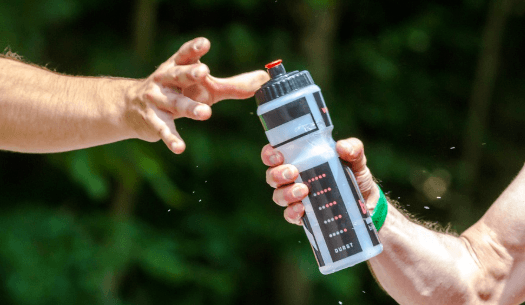Distance running can be incredibly rewarding… and incredibly painful, and incredibly tiring. Now that you’ve achieved your mile goal, your body needs a little help on bouncing back. These are three steps on how to recover after a long run.
Remember, recovery after a long run can continue for up to three days after it’s done. Long-distance running is incredibly challenging for your body, and they’re really hard to do. They deprive your body of carbohydrates, cause micro injuries in your muscles, and they can be mentally exhausting. Some experts say that you shouldn’t do long runs more than once every two or three weeks. Professional runners often do one long run per week, but this is a little ambitious for the average amateur.
Everybody is different, and the responses to long runs will vary from person to person. Some people are genetically more able to handle long distance running, and some need more time between long runs to recoup. Pay attention to what your body tells you and do what’s right for you.
1. Eat
Your body has worked hard, and now it’s hungry. How to recover after a long run is important.
Scientists believe that there is a 15-minute window after a hard workout when the body is absorbing and processing energy at its most efficient level. In the first 15 minutes after a run, glycogen is being stored in the muscles for future use. It’s important to take this opportunity to provide your body with the things it needs to do that burning-and-storing most effectively.
Eat a snack right after a long run. Bagels, bananas, pasta, a whole-wheat pita… anything that’s packed with carbohydrates. If your stomach is feeling a little uneasy after being jostled for miles, then give the solid food a pass, but try to drink liquid fruit juices or a carbohydrate-filled smoothie. The idea is to give your body the carbohydrates it so desperately needs to get fueled up again.
2. Drink
Hydration is everything. Water is literally the key to life, and after your long run, your body’s supply is running out. Even if you were drinking the whole time you were running, chances are that your body is still dehydrated. This makes your blood thicker and harder to pump, and dehydration can cause headaches, muscle cramps, and worse. Thirst is no guide, either. You may not feel thirsty at all, even though you’re seriously under-hydrated.
So, how to recover after a long run?
First of all, make sure you’re well-hydrated before the run even starts. Drink one glass of water for every cup of coffee, can of soda or cup of tea that you drink. Carry water with you everywhere you go and try to drink 60 ounces of water every single day. Drink a glass of water with every meal.
During your run, keep water handy and try to drink four ounces for every mile you run. Plain water probably isn’t the best choice for during-the-run hydration; performance liquids and drinks like Gatorade contain salts, which help keep the fluids moving through your body. This is especially important on hot days, when your increased sweating tends to leech electrolytes from your tissues.

After the run, you can drink a recovery drink, ideally one that’s got a carb-to-protein ratio of around 4:1. This will have you replenish all of the energy building supplies that you depleted while you were on your feet. In the post-run stage, it’s a good idea to alternate pure water with performance drinks.
Make hydrating a part of your customary routine. The best rule of thumb on how to recover after a long run is to drink one quart of fluid for every half hour you spent running
3. Be Cool
After your run, your legs are burning – almost literally. There’s a lot of blood sitting in your legs now that your strain and effort are over. Cold water applied to your legs will have to constrict your blood vessels and muscle tissues, which prevents blood from pooling in your legs and feet. You can take a cold shower, apply an ice pack, or even just run water from a hose over your legs. The cooling will feel amazing, and the vasoconstriction will help to keep any post-run inflammation from ruining your day. These are very effective on how to recover after a long run.
It’s tempting to dive into a hot shower right after a hard run, but this will actually impede your recovery. You’re already overheated. A cold shower will help you to regulate your body temperature, and the coolness will be a relief. You don’t have to spend long in a cold shower – 30 to 60 seconds should be enough time – but it would be time well spent.